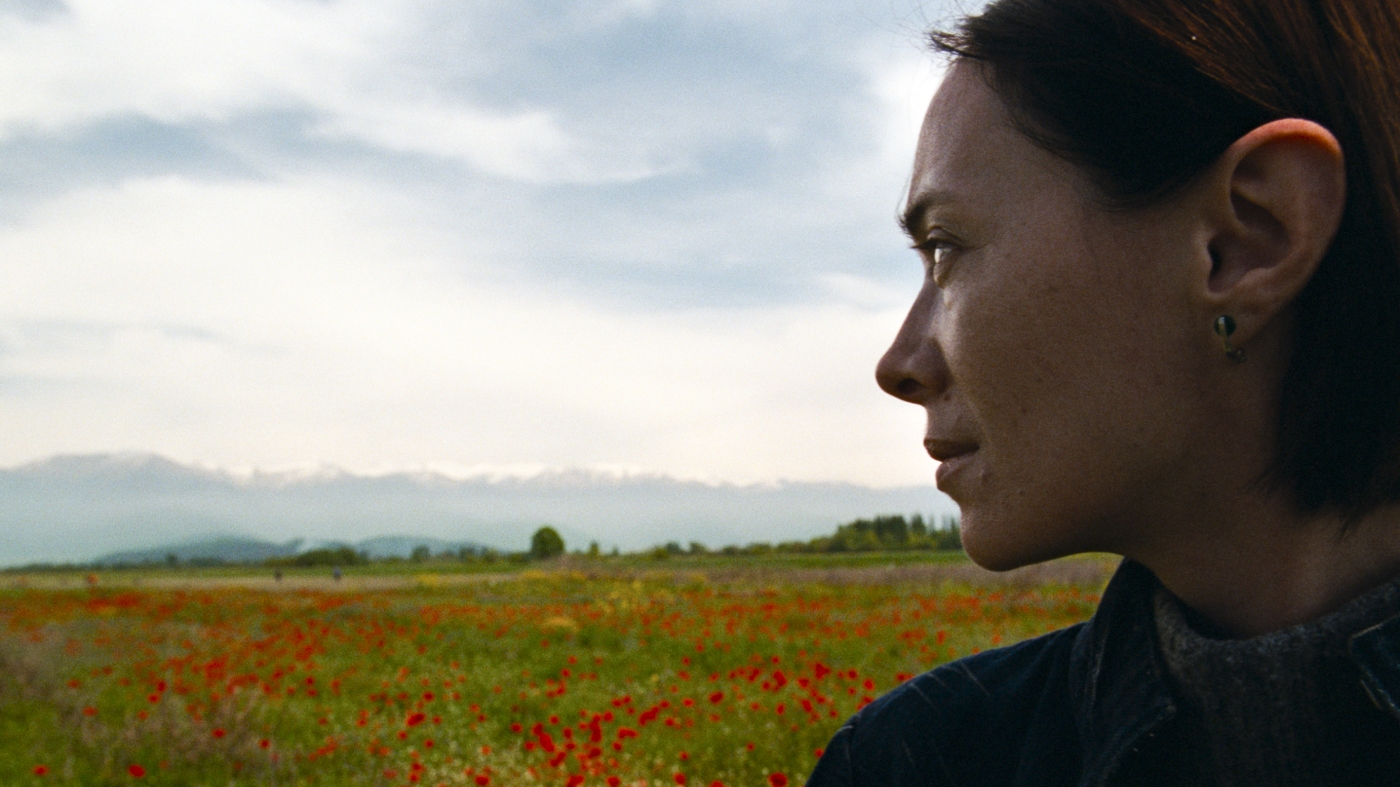Dea Kulumbegashvili’s April: A Deep Dive into Rural Georgia’s Maternity Care
Introduction
In the heart of rural Georgia, at the foot of the Caucasus Mountains, a unique cinematic journey unfolds. Dea Kulumbegashvili, a Georgian filmmaker, has immersed herself in the world of maternity care by embedding in a birth clinic for an entire year. This experience has culminated in her new feature film, “April,” which sheds light on the life of an obstetrician in a region where traditional values and modern medicine collide. The film, starring Ia Sukhitashvili as Nina, an obstetrician who performs abortions, offers a poignant and intimate portrayal of the challenges and triumphs faced by healthcare providers in rural settings.
The Inspiration Behind “April”
Kulumbegashvili’s decision to embed in a maternity clinic for a year was driven by a deep-seated desire to explore the intricacies of rural healthcare in Georgia. The filmmaker’s interest in the subject was sparked by the stark contrast between the serene landscapes of the Caucasus Mountains and the often harsh realities of providing medical care in such isolated regions. By immersing herself in the daily routines and challenges faced by obstetricians, Kulumbegashvili aimed to create a film that is both authentic and emotionally resonant.
The inspiration for “April” also stems from Kulumbegashvili’s fascination with the complex social and cultural dynamics that shape the lives of women in rural Georgia. The film delves into the themes of tradition, modernity, and the struggle for personal autonomy, all of which are reflected in the character of Nina. As an obstetrician who performs abortions, Nina navigates the delicate balance between her professional duties and the societal expectations that often clash with her work.
The Setting and Its Significance
The setting of “April” is as much a character in the film as the people who inhabit it. The rural landscapes of Georgia, with their rugged beauty and isolation, provide a stark backdrop to the intimate and often intense scenes that unfold within the maternity clinic. The choice of location is not merely aesthetic; it serves to highlight the unique challenges faced by healthcare providers in remote areas.
The clinic itself is a microcosm of the broader societal tensions that the film explores. It is a place where life and death are constant companions, and where the boundaries between personal and professional lives are often blurred. The clinic’s setting at the foot of the Caucasus Mountains adds a layer of symbolic significance, representing the enduring strength and resilience of the women who seek care there.
The Character of Nina
At the heart of “April” is Nina, played by Ia Sukhitashvili. Nina’s role as an obstetrician who performs abortions places her at the center of a complex web of moral, ethical, and social issues. Her character is a study in contrasts—she is both a healer and a controversial figure, a woman of science in a world steeped in tradition.
Nina’s journey is one of personal and professional growth, as she grapples with the weight of her responsibilities and the judgments of her community. Sukhitashvili’s portrayal of Nina is nuanced and powerful, capturing the character’s strength, vulnerability, and unwavering commitment to her work. Through Nina, Kulumbegashvili explores the themes of women’s rights, reproductive health, and the struggle for autonomy in a patriarchal society.
The Filmmaking Process
Kulumbegashvili’s decision to embed in a maternity clinic for a year was a bold and ambitious move, one that required a deep commitment to authenticity and immersion. By spending an extended period within the clinic, the filmmaker was able to gain an intimate understanding of the daily routines, challenges, and triumphs of the healthcare providers who work there.
The filming process itself was a collaborative effort, with Kulumbegashvili working closely with the clinic’s staff and patients to capture the nuances of their experiences. This approach allowed for a level of realism and authenticity that is often difficult to achieve in narrative filmmaking. The result is a film that feels both intimate and expansive, offering a window into a world that is often hidden from view.
Themes and Symbolism
“April” is rich in themes and symbolism, each element carefully chosen to enhance the narrative and deepen the viewer’s understanding of the characters and their world. The title itself, “April,” is a nod to the month of April, a time of renewal and rebirth, which mirrors the themes of life and death that pervade the film.
The Caucasus Mountains, with their towering presence, symbolize the enduring strength and resilience of the women who seek care at the clinic. The clinic itself, with its stark and often austere setting, serves as a metaphor for the challenges and contradictions that the characters face. The use of natural light and the clinic’s rustic architecture further emphasize the film’s themes of authenticity and immersion.
Impact and Reception
Since its release, “April” has garnered critical acclaim for its powerful storytelling and authentic portrayal of rural healthcare in Georgia. The film has been praised for its nuanced exploration of complex social and cultural issues, as well as its sensitive and empathetic treatment of its characters.
Audiences and critics alike have responded positively to Kulumbegashvili’s bold and immersive approach to filmmaking, noting the film’s ability to transport viewers into a world that is both familiar and foreign. The performances, particularly Sukhitashvili’s portrayal of Nina, have been singled out for their depth and emotional resonance.
Conclusion: A Film of Depth and Resonance
“April” is more than just a film; it is a testament to the power of storytelling and the importance of authenticity in cinema. Through her immersive and collaborative approach, Dea Kulumbegashvili has created a work that is both intimate and expansive, offering a window into a world that is often overlooked and misunderstood.
The film’s exploration of themes such as women’s rights, reproductive health, and the struggle for autonomy in a patriarchal society is both timely and relevant. “April” serves as a reminder of the enduring strength and resilience of women, as well as the importance of empathy and understanding in navigating the complexities of modern life.
In a world where so much of our attention is focused on the big and the spectacular, “April” stands as a quiet but powerful reminder of the beauty and depth that can be found in the everyday. It is a film that will resonate with viewers long after the credits have rolled, leaving a lasting impression on all who watch it.


